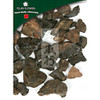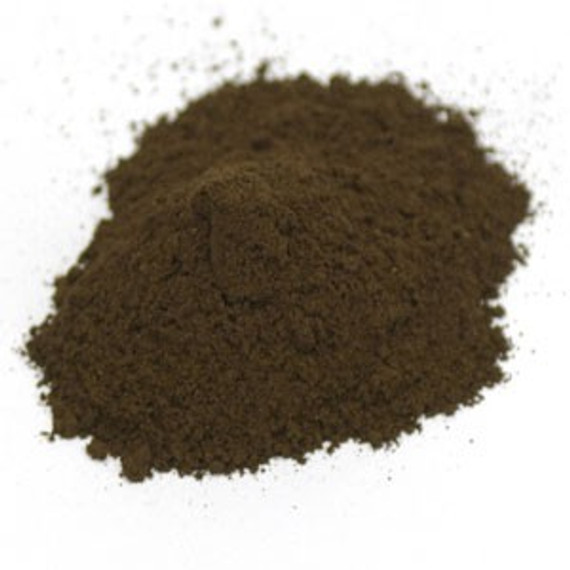Acacia catechu: Health Benefits, Bioactive Compounds, and Traditional Uses Explained
Acacia catechu—also known as Khair or black catechu—is a medicinal plant widely used in traditional systems like Ayurveda and Traditional Chinese Medicine. Derived mainly from the heartwood and bark of the tree, it has been valued for its antimicrobial, anti-inflammatory, and antioxidant effects.

What Is Acacia catechu?
Acacia catechu is a deciduous tree native to parts of South and Southeast Asia. Traditionally, various parts of the tree have been used to treat wounds, digestive issues, oral infections, skin conditions, and inflammation.
| Health Benefit | Why It Works (Scientific & TCM Perspective) | Usage Notes |
|---|---|---|
| Antioxidant protection | Rich in flavonoids (catechin, epicatechin) that scavenge free radicals and reduce oxidative stress | Used in teas and decoctions for daily detox and cell protection |
| Anti-inflammatory support | Contains tannins and polyphenols that reduce inflammation at the cellular level | Applied as a compress or taken internally for arthritis or skin inflammation |
| Oral and gum health | Antibacterial and astringent properties help fight gum infections and tighten oral tissues | Traditional ingredient in herbal mouth rinses and tooth powders |
| Blood sugar regulation | Catechin and other polyphenols modulate glucose metabolism and insulin sensitivity in preclinical studies | Used in supportive formulas for early-stage metabolic conditions |
| Antibacterial & wound healing | Tannins and gallic acid inhibit bacterial growth and support tissue repair | Applied topically in poultices or taken internally for digestive infections |
| Skin healing and toning | Astringent compounds tone the skin and help with acne, minor cuts, and skin infections | Used in herbal pastes, compresses, or bath soaks |
| Digestive support | Bitter and astringent nature helps reduce diarrhea, dysentery, and gut inflammation | Often included in Ayurvedic formulations for gastrointestinal disorders |
| Heart health (TCM) | In Traditional Chinese Medicine, thought to astringe the blood and stop bleeding, especially in stool or urine | Used in combination with other herbs for blood leakage or bleeding syndromes |
Key Bioactive Compounds
The plant contains a range of phytochemicals responsible for its health-promoting effects. These include:
-
Flavonoids: Catechin, epicatechin, and quercetin, known for antioxidant properties
-
Phenolic acids: Gallic acid, protocatechuic acid, which reduce inflammation
-
Tannins: Provide astringent, antimicrobial effects
-
Procyanidins and taxifolin: Offer support for immune and metabolic health
These compounds work together to combat oxidative stress, microbial infections, and chronic inflammation.
Documented Health Benefits Of Er Cha - Acacia Catechu Essence
Traditional and Modern Applications
-
Medicinal Use: Common in Ayurvedic formulas and used in pastes, tinctures, and decoctions
-
Culinary Use: The extract known as "Katha" is used in betel nut preparations (paan)
-
Industrial Use: Employed in natural dyes and leather tanning due to its tannin content
Frequently Asked Questions
Is Acacia catechu safe to consume?
It is generally considered safe when used traditionally, but long-term safety in high doses has not been studied. Always consult your doctor if using for extended periods or alongside medication.
Can I use Acacia catechu for diabetes?
It shows promise in preclinical research for lowering blood sugar. However, it should not replace your current diabetes treatment without medical supervision.
Does it work for gum disease?
Yes. It has been traditionally used for mouth ulcers, gum swelling, and bad breath. Today, it’s found in some natural oral care products.
Is it used in skincare?
Yes, its antimicrobial and astringent properties make it useful for skin health, especially in formulations for acne and oily skin.
Considerations and Warnings
-
Dosage: There is no standard clinical dosage yet. Follow traditional guidelines or consult a practitioner.
-
Interactions: Possible interactions with diabetes or blood pressure medication.
-
Pregnancy/Breastfeeding: Safety during pregnancy or lactation has not been well studied.
-
Allergic Reactions: Those allergic to legumes or tannins should exercise caution.
- Contraindication for Cold-Dampness
What Should Be Considered?
| Consumer Concern | Information Provided |
|---|---|
| Safe dosage guidelines | No clinical dose is established—seek professional guidance |
| Use for diabetes | Early research is positive, but it's not a replacement for meds |
| How to use it | Can be used in teas, powders, capsules, and mouth rinses |
| Skin health | Useful in acne and antimicrobial topical products |
| Is it toxic? | No toxicity reported at traditional doses, but more studies needed |
Conclusion
Acacia catechu is a time-tested herb with modern scientific backing for its antioxidant, antimicrobial, and metabolic support properties. While more clinical trials are needed, its long-standing use in traditional medicine and growing body of research suggest it has significant value in both preventative and therapeutic health strategies.
Herbal Information on Acacia Catechu Essence in Bulk Cut Form
Common Name: Acacia Catechu Essence
Botanical Name: Acacia catechu essence
Channels/Meridians: Lungs
Pin Yin Name: Er Cha
Other Ingredients: None, nothing has been added to this product.
Package Size: 500 Grams ( 1.1 pounds)
Form: Powder - Cut / Sliced - sizes vary
Origin: China
Brand: Plum Flower, species - authenticated herbs
California Prop 65
Summary Of Er Cha
- Er Cha Drains Dampness
- Clears Heat
- Transforms Phlegm
- Promotes Digestion
- Catechu is made by grinding and boiling the wood of the acacia tree into a syrup. The syrup is poured into a mold and cooled. Once cooled it is broken into irregular shapes.
- Besides its medicinal uses, catechu is also used as a dye in India. It creates a olive green to brown color. In fact, this is where the color khaki was derived.
Product Proprieties: Bitter, Astringent, Slightly Cold
Naturally Occurring Components: catechin, quercetin, japonic acid, gambirine
What Herbs can Acacia Catechu Essence be combined with?
- Bai Ji with Acacia Catechu Essence
- Peng Sha with Acacia Catechu Essence
- Long Nao Xiang with Acacia Catechu Essence
- Skullcap with Acacia Catechu Essence
- Kudzu with Acacia Catechu Essence
- Cnidium with Acacia Catechu Essence
- Myrrh with Acacia Catechu Essence
Check out our How to Use Bulk Herbs page to see how to use herbs correctly. Our web page is constantly expanding, as of today we have articles on:
- How to make salves, poultice, tinctures, teas, capsules, gargles, and foot bathes
- How to make a citrus facial splash
- Cayenne pepper: Caterpillar and aphid spray ( Natural insect repellent )
- Citrus potpourri basket
About Plum Flower Quality Herb Powders
Plum Flower is an established worldwide manufacturer of high-quality Chinese herbs, and innovative Chinese medicinal herbs and products. Plum Flower uses sulfur-free herbs and laboratory tests its products for contamination and heavy metals, such as mercury, lead, and pesticides.
- Made at GMP internationally certified facilities (Good Manufacturing Practices) Quality control tests are done at the manufacturing site and at third party labs to confirm results.
- Manufactured using Unsulfured, Chlorine free, Aluminum Phosphate free herbs when possible.
- Microbials and heavy metals tested. No preservatives.
Manufacture's Statement: It is important to note that Plum Flower formula extract powders do not contain any excipients. They are spray-dried directly from the condensed herbal decoction, and the resulting powder is the natural yield of the formulation. Individual herbs can vary significantly in the amount of dissolved solids they yield during extraction. Many do not have the needed substance to form a powder, and our single herb extract powders contain a pharmaceutical-grade, non-GMO corn-based dextrin when necessary.
Traditional Chinese Herbs
Chinese Traditional herbs should be regarded as an added feature to modern western healthcare, and not as a replacement. Chinese traditional herbs (Teas) emphasize harmony, and balance.
Reference:
alternativehealing.org
https://pmc.ncbi.nlm.nih.gov/articles/PMC6822161/
https://pmc.ncbi.nlm.nih.gov/articles/PMC9697042/
https://phcogrev.com/sites/default/files/PharmacognRev-18-35-82.pdf





























